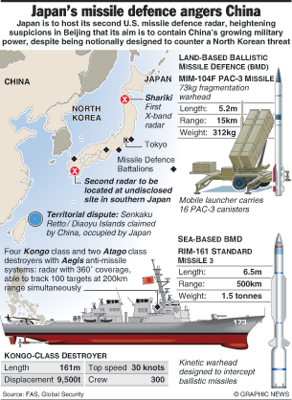Sunday Times 2
The unstoppable march of China?
Economists talk an awful lot of rubbish, and they probably talk more rubbish about the Far East than any other part of the world.
In the late 1980s, every day brought new dire warnings from highly-trained and deeply knowledgable experts on how Japan was going to take over the world. Japanese expansion was unstoppable and the West was doomed.
You could not argue with these people. You could point out that Japanese prosperity from the 1950s onwards was based on exports to the West, and so if western economies collapsed it was unlikely that Japan would continue to boom, but they wouldn’t listen.
You could tell them about the ‘Yellow Peril’, a scare as popular among our Edwardian predecessors as climate change is with people who should know better today.

This had it that the Chinese, Japanese, or whichever Asian group happened to be in mind at the time, were going to breed like rabbits and take over the world. Kaiser Wilhelm ll is said to have coined the phrase, before he engaged Europe’s attention in its own little internal arguments.
The Yellow Peril turned out to be, like global warming, hot air. But it lived on as the as the deep-rooted and unsavoury foundation of the views of apparently sane economic pundits.
In the recession of the early 1990s Japan’s outrageously high property prices turned out to be one enormous bubble and its economy has been struggling to recover ever since. Mired. Pretty much stagnant. Famous companies running into trouble. Nobody says any more that Japan is taking over the world.
What happened was that after Japan had grown by undercutting Western industry with cheaper and better goods, Asian rivals learned to do the same to Japan.
Enter China.
We have had a number of years of hearing the same sort of wise predictions about China as we had two decades ago about Japan. Chinese wealth and power is taking over the world, we are assured. It is unstoppable. There are so many of them, and they work so hard for such low pay. Their vast army and their aircraft carriers, warplanes and space satellites will reduce the rest of us to submission.
It has never been hard to detect a trace of the old Yellow Peril racism behind all this. It has however, been harder to argue with people who seemed to assume that Chinese economic expansion would go on at increasing speed for ever.
Arguing may get easier from now on, because all the signs are that China has just hit the wall.
As with Japan before her, China shows all the signs of suffering because of recession in the West. Factories closing, unemployment in the cities, and so on. The pressure is now taking effect in a worrying mixture of internal political upheaval and belligerence abroad.
British people will be familiar with the kind of national anger that can be stoked up in unstable countries over the ownership of small islands. This is now happening in China over the obscure Diaoyu group.
As is inevitably the case of all good disputes over uninhabited islands, there is supposed to be oil under the surrounding seas.
And the country currently in charge in the islands – the Senkaku islands if you are Japanese – is Japan, and China has never forgiven Japan for the bloodletting and terror of the occupation that ended in 1945.
This is a historic wound that is still open. There has never been a major attempt to settle differences, no effort to form an alliance or understanding, no moving symbolic moment such as Francois Mitterand and Helmut Kohl achieved for France and Germany by holding hands at the Verdun battlefield in 1984.
In Britain people whose grandfathers and grandmothers would never buy German cars in the 1950s are proud to drive Minis built in a German-owned factory. In China Japanese companies, including Honda, Nissan, Mazda and Canon, are busy shutting down their factories in fear of demonstrations and attacks.
Just to make sure nobody is missing the message, China has despatched a fleet of fishing boats to the islands, with the aim of winding up the Japanese coastguard.
We appear to have a classic case of an international row developed to divert attention from political trouble at home. The fall of Chongqing party boss Bo Xilai and the subsequent show trials of his wife, for murdering British fixer Neil Heywood, and his police chief who tried to flee, remind us that China continues to be governed by a dictatorial Communist Party elite whose methods would be familiar to Stalin and Mao.
The disappearance and reappearance of Xi Jinping, shortly before his expected coronation as president, is another highly unusual sign that, beneath the opaque surface, something rough is going on.
Where does this leave China’s march to worldwide economic domination? Stuck up a blind alley, looking for the way out, is the answer. Western investors have been given a nasty shock. If Honda have to shut down plants in China, what confidence does that give everybody else?
What if there is a dispute with America next? You can write off a current argument over Chinese subsidies for car part factories as Obama electioneering. But there is a second row, over a US decision to send missile defence radars to Japan, which has an altogether more sinister echo of the Cold War.
But the signs from Beijing are pointing the other way. What China needs is not advertising, but stable government, a reliable legal system, and good relations with its neighbours. It is increasingly obvious that the lack of any could hurt its economy even harder than the recession.
© Daily Mail, London
Follow @timesonlinelk
comments powered by Disqus






















